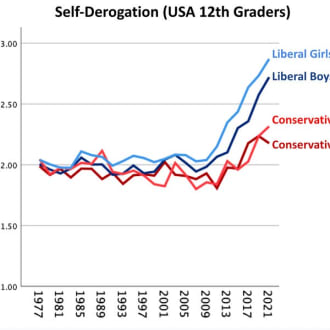Who Gets to Be Mentally Ill?
Today, people talk about seeing a therapist like they’re going to the dentist. But our compassion around mental health still excludes the people who need it most
More from The Walrus
How Do You Make the Perfect Toy?
Fads come and go, but how to create a toy that stands the test of time is the billion-dollar question
In Defence of Garlic in a Jar: How Food Snobs Almost Ruined My Love of Cooking
Celebrity chefs, food writers, and home cooks have sneered at pre-cut produce. They’re dismissing those of us with disabilities
Much Ado about Hummus: The Fight for Bragging Rights over a Middle Eastern Dip
From beet to butterscotch, how far can hummus travel from its origins and still be hummus?
The World’s Oldest Ultramarathon Runner Is Racing against Death
Dag Aabye is eighty-one, lives in an old school bus on a mountain, and is pushing his body to its absolute limits
What is Refind?
Every day Refind picks the most relevant links from around the web for you. Picking only a handful of links means focusing on what’s relevant and useful. We favor timeless pieces—links with long shelf-lives, articles that are still relevant one month, one year, or even ten years from now. These lists of the best resources on any topic are the result of years of careful curation.
How does Refind curate?
It’s a mix of human and algorithmic curation, following a number of steps:
- We monitor 10k+ sources and 1k+ thought leaders on hundreds of topics—publications, blogs, news sites, newsletters, Substack, Medium, Twitter, etc.
- In addition, our users save links from around the web using our Save buttons and our extensions.
- Our algorithm processes 100k+ new links every day and uses external signals to find the most relevant ones, focusing on timeless pieces.
- Our community of active users gets the most relevant links every day, tailored to their interests. They provide feedback via implicit and explicit signals: open, read, listen, share, mark as read, read later, «More/less like this», etc.
- Our algorithm uses these internal signals to refine the selection.
- In addition, we have expert curators who manually curate niche topics.
The result: lists of the best and most useful articles on hundreds of topics.
How does Refind detect «timeless» pieces?
We focus on pieces with long shelf-lives—not news. We determine «timelessness» via a number of metrics, for example, the consumption pattern of links over time.
How many sources does Refind monitor?
We monitor 10k+ content sources on hundreds of topics—publications, blogs, news sites, newsletters, Substack, Medium, Twitter, etc.
Can I submit a link?
Indirectly, by using Refind and saving links from outside (e.g., via our extensions).
How can I report a problem?
When you’re logged-in, you can flag any link via the «More» (...) menu. You can also report problems via email to hello@refind.com
Who uses Refind?
450k+ smart people start their day with Refind. To learn something new. To get inspired. To move forward. Our apps have a 4.9/5 rating.
Is Refind free?
Yes, it’s free!
How can I sign up?
Head over to our homepage and sign up by email or with your Twitter or Google account.








